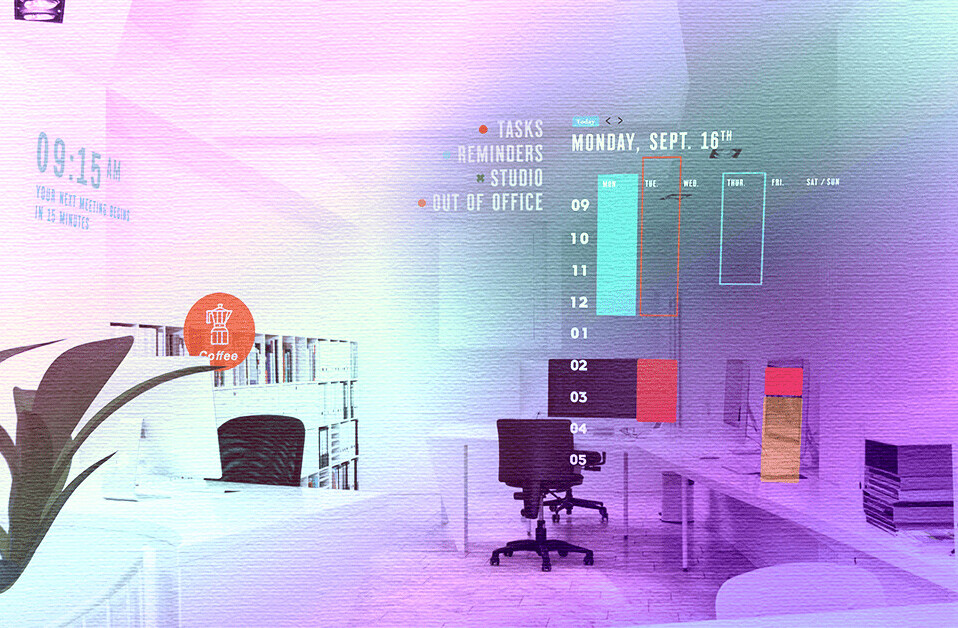
Work-life balance has always scared me. Aside from the fact that it isolates work and life as two opposing states of being, it’s the number one topic that’s always brought up at a table of entrepreneurs.
I do think it’s important to discuss these topics and since entrepreneurship can be a lonely profession at times, you have to vent to someone, but what bugs me is people rarely admit the reality: work-life balance, at least for entrepreneurs, is a pretense. It’s a bit like when a doctor asks you whether you’ve ever smoked and your immediate answer is no even though you did and still do occasionally with a pint of beer.
No entrepreneurs I know finish working when they leave the office. Sure, they might not be answering emails or sitting at their laptop, but I’ll bet you that they’re thinking about their business, they’re reading, they’re innovating and that’s not a bad thing. Being obsessed with your business usually means you’re onto something good.
I’m not suggesting that we should all be plugged into work at all times, allowing your mind space is fundamental to your health and happiness, but we shouldn’t be beating ourselves up every time our thoughts wander into the realm of work when we’re supposed to be having “downtime”. Work-life balance, I believe, should be defined and implemented by the individual, and it becomes a struggle only when we try and fail to live up to others’ expectations.
So what’s my reality of work-life balance?
I started my first business at the age of 21 whilst living on an island off the coast of Honduras. It was exciting and I was passionate and reckless. Five years down the line, I was stuck behind a desk in British suburbia, managing spreadsheets.
The business was doing well, but not making enough money just yet. I was overweight, bored and stressed. A check-up at the doctor revealed the reality of the situation, which was that I’d gone ‘over the edge,’ or in his words: “If you carry on like this, you’ll be dead by the time you’re 50.”
Looking for a drastic quick fix, my wife, baby daughter, and I sold our home and moved to the beach in Costa Rica. I switched to working remotely, I got into raw food, surfing, and meditation. Despite the occasional hurricane and power cut, we were happy, but the business suffered without me.
I was lucky enough that the industry continued to boom even when the recession hit, but it didn’t grow like it could have done if I was there and as the years passed, I started to miss that buzz of brainstorming ideas, of motivating, of speaking to inspiring, like-minded people. Like many entrepreneurs, I’m restless by nature. So we moved again to Cape Town, where we still live now, and I started a new venture. This has tipped the balance again, but the difference is that although the hours are long, I’m truly excited about going into the office because the business is growing fast and I believe in it.
My point is that work-life balance, for entrepreneurs, is a myth by definition because our work is our life and if you want to succeed, there’s no way around that. If you’re talking in terms of hours spent in the office versus hours spent at home, that always fluctuates. What we really should be concerning ourselves with is creating an environment in which we and our employees can flourish, learn, have fun, be productive and relax.
It’s important for health and happiness and for business success. In a very insightful and humorous TED talk, Shawn Anchor, author of ‘The Happiness Advantage’ suggests that business owners need to:
Reverse the happiness and success formula. We think if we work harder and achieve some entrepreneurial goal, then we’ll be happier. But the research is clear that every time you have a success, your brain changes what success means. So for you and for your team, if happiness is on the opposite side of success, you’ll never get there.
But if you increase your levels of happiness in the midst of a challenge, in the midst of searching for investment, in the midst of a down economy — what we find is that all of your success rates rise dramatically — every business outcome improves.
How can we increase happiness?
We recently had to let some of our employees go and I noticed a general dip in morale. This was damaging the productivity and the positivity of the team so we introduced free gym memberships and split up the office with moveable walls of plants to encourage creativity. We’re also about to install a sleep pod so that people can take naps and meditate during the day.
Most importantly, we’re trying to make the working day less automatic so that our employees still feel like they have some control over their lives. Our employees can start and leave whenever they like as long as the whole team is together between 11 am and 4 pm and they clock their hours.
In a recent article in the Guardian, titled “Why now’s the time to embrace flexible working”, Tom Neil, a guidance writer for ACAS predicts that for an organization to attract and retain a happy and productive workforce, employers need to think beyond traditional boundaries. “That means running a business in an open-minded and adaptable manner,” he says. “Most roles can accommodate some sort of flexible working arrangement… a compromise between the employee and the employer can often lead to an outcome that works for everyone.”
Make business more “life-like”
Understandably, it’s important to have boundaries between the office and home, and those should be respected by employers, but if we accept that work is a major part of our lives, then we should find ways to make it more “life-like”. Business success and profits aside, we need to be prioritizing our employees’ happiness so that they feel fulfilled and inspired.
It’s up to business leaders to make the change and that begins by letting go of the aspiration for a work-life balance that’s unattainable by definition. We all need to find and embrace our own rhythm.
Get the TNW newsletter
Get the most important tech news in your inbox each week.





